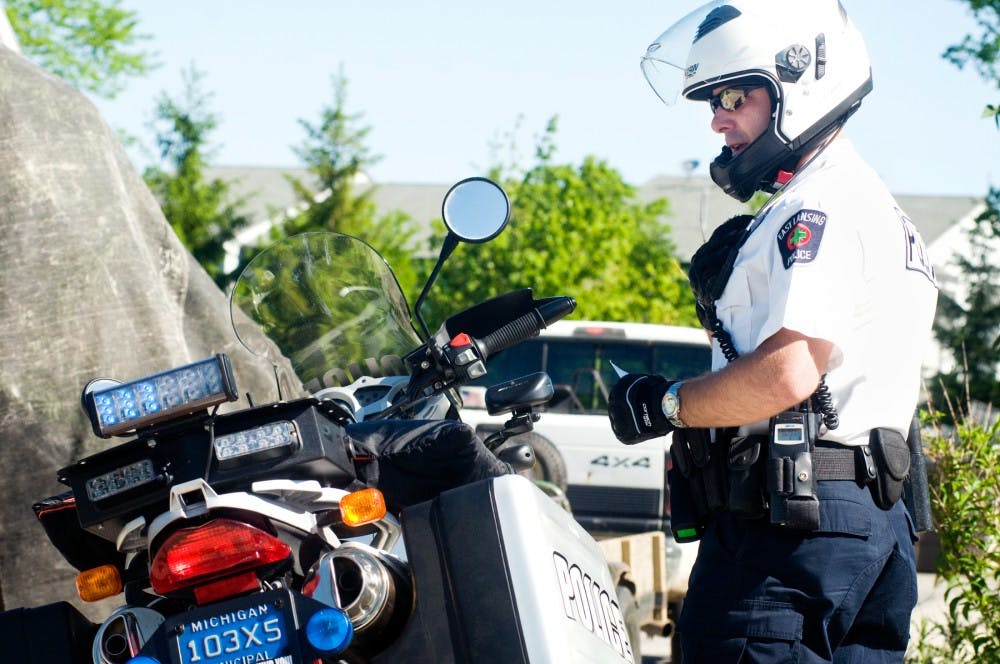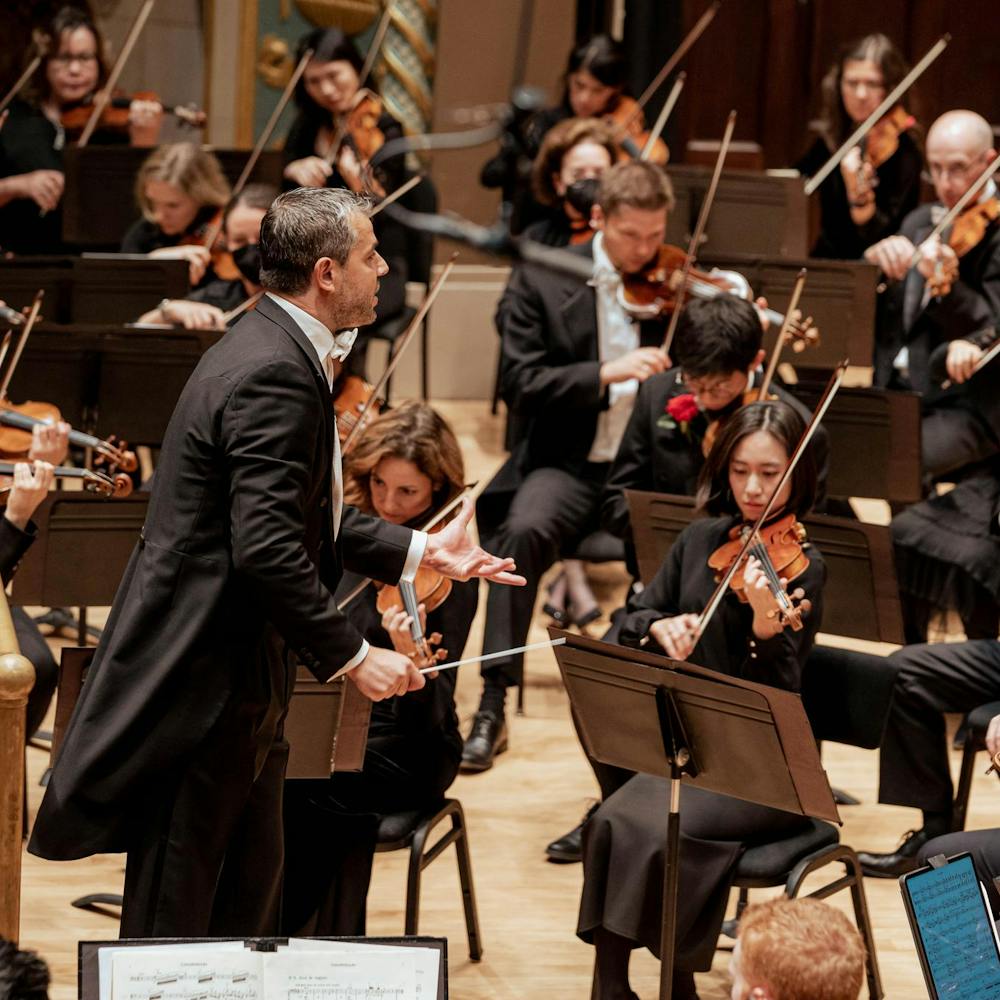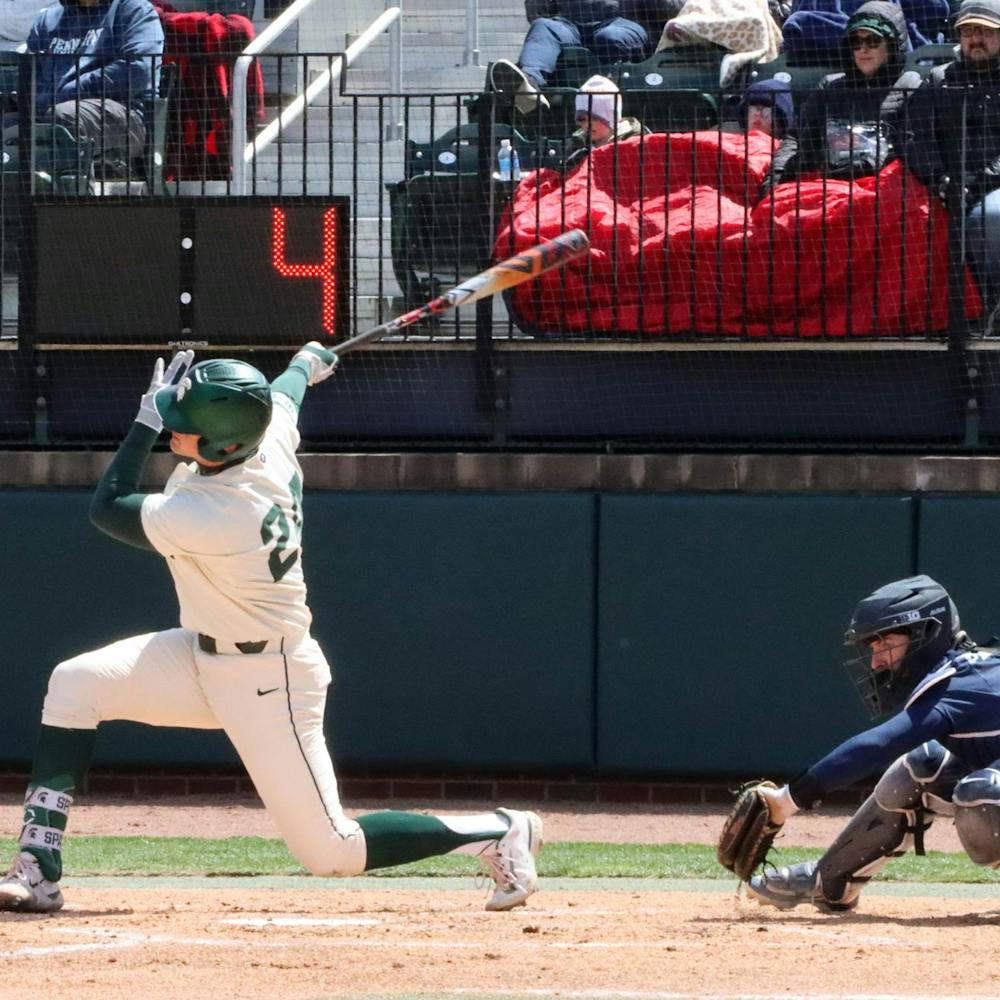Although seeing an officer show up to a late-night party can be scary, experts said there are basic rights students have when dealing with police.
“It’s always best to be cooperative,” East Lansing City Attorney Tom Yeadon said. “If you’re doing something inappropriate, you’re more likely to get a break from the officer or our office if you’re cooperative — general cooperativeness goes a long way.”
Senior Melissa Kelm said because she is a political science and pre-law major, she knows her rights when dealing with a police officer, but most students don’t. Kelm said students might consent to unnecessary searches or questioning out of fear of police authority.
“Even if you’re doing something wrong, you shouldn’t consent to have your rights violated,” she said.
Here are some basic guidelines when dealing with police, provided by local experts. All rights listed have some exceptions.
When approached by an officer
Unless lawfully detained or arrested by an officer, students do not have to speak with an officer on the street, Yeadon said.
Yeadon said if police do have reason to detain an individual and the person leaves, they could be charged with obstructing an officer. However, this only applies in situations where an officer has given the person an order to stop or stay.
Jim Newton, a lawyer from ASMSU Legal Services, said if students aren’t sure if police suspect them of criminal activity or have evidence to detain them, students should know they can politely ask, “Do I have the right to leave?” for clarification.
“You’re free to leave until the officer determines you’re not free to leave,” Newton said.
Taking a Breathalyzer
Yeadon said students are not always required to take a Breathalyzer test.
“If you’re in the street, our ordinance says they can ask you to take it and you don’t have to,” Yeadon said. “But often times, the officer has enough information to make an arrest anyway.”
He said in the case of suspected drunken driving, an individual is required by law to take a Breathalyzer test on site. An individual can refuse the preliminary test at the cost of a civil infraction but often times will be arrested based on other evidence, such as signs of intoxication during a field sobriety test.
After refusing, a Breathalyzer or blood test then will be taken at the police station. Penalties for not taking the secondary test include a one-year license suspension and six points on a driver’s record.
When an officer knocks on your door
Police typically need either consent or a warrant to enter a private residence, but might enter if there is an emergency or they are chasing someone, Newton said. He said if police are simply talking with a person at their door and witness something illegal taking place in their home, they have the right to come inside.
“If there’s a crime going on in their presence, then they have the right to take control of a situation,” Newton said.
The same general rights apply in resident hall dorm rooms, according to the Student Life Handbook online.
When being pulled over while driving
Yeadon said if pulled over, students must provide a driver’s license and vehicle registration if requested by police. Failure to provide either can lead to penalties.
He said although police have the right to look in a car window, in some cases police can search the vehicle to search for weapons for their own safety or if they have probable cause that there are illegal substances inside. Impounded cars can be searched by police.
When an officer asks to search your bag
“You have a Fourth Amendment right to be free from unreasonable searches and seizures, but there are all sorts of exceptions to that right,” Yeadon said.
Yeadon said if an officer asks to search a student’s bag, they have the right to decline. There are exceptions to that law, so if police search anyway, it is best to comply, Yeadon said. Noncompliance might be considered obstructing an officer.
Support student media!
Please consider donating to The State News and help fund the future of journalism.
Discussion
Share and discuss “Know your rights at MSU” on social media.




